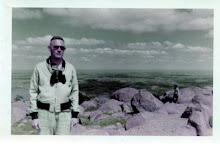

a number of documents released April 16 provide the most detailed glimpse yet of the deliberations inside the C.I.A. surrounding the destroyed tapes, and of the concern among officials at the spy agency that the decision might put the C.I.A. in legal jeopardy.
The documents detailing those deliberations, including two e-mail messages from a C.I.A. official whose name has been excised,.
The e-mail messages also reveal that top White House officials were angry that the C.I.A. had not notified them before the tapes were destroyed. The e-mail messages mention a conversation between Harriet E. Miers, the White House counsel, and John A. Rizzo, the C.I.A.’s top lawyer, in which Ms. Miers was “livid” about being told after the fact.
“Rizzo is clearly upset, because he was on the hook to notify Harriet Miers of the status of the tapes because it was she who had asked to be advised before any action was taken,” according to one of the e-mail messages.
Labels: cia, Harriet E. Miers, John A. Rizzo, porter goss, tapes, torture








